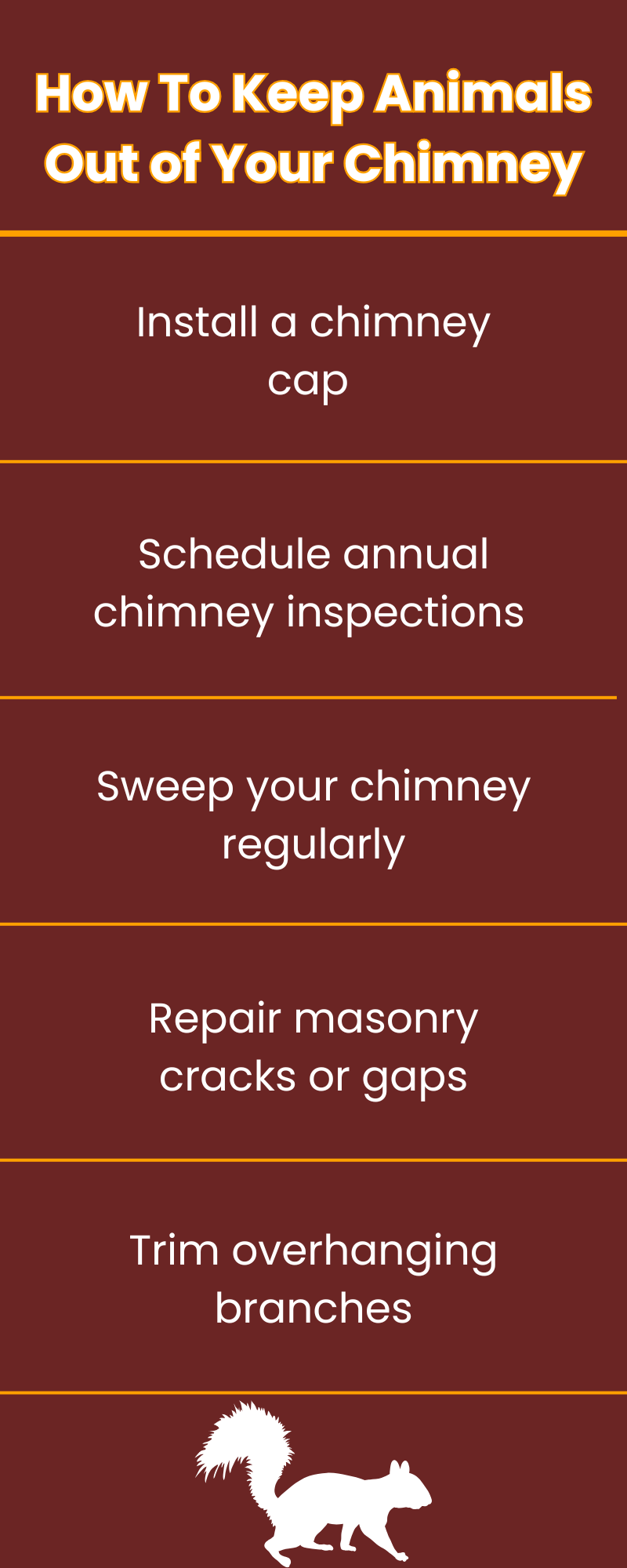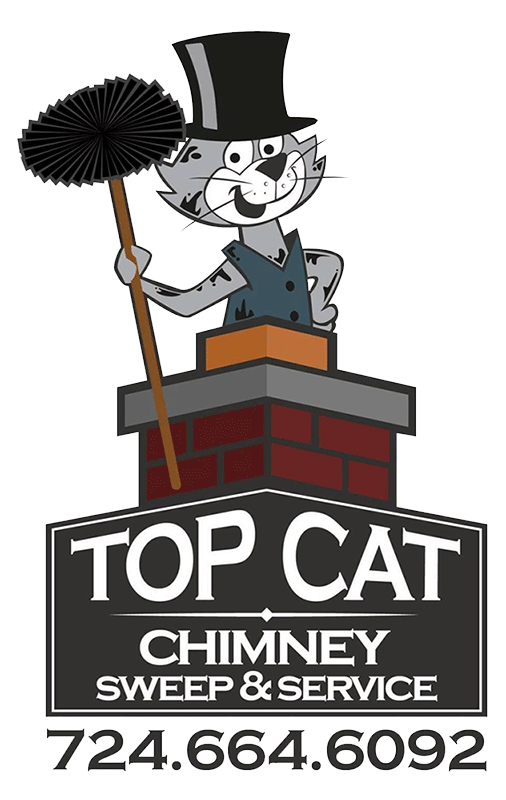Pittsburgh homeowners know that each season brings its own challenges, especially when it comes to maintaining your home’s chimney. One issue that often gets overlooked until it escalates is uninvited critters. From nesting birds to curious raccoons, animals see chimneys as a warm, protected space, perfect for taking shelter. Unfortunately, these encounters can lead to blockages, odor problems, and dangerous chimney fires.
The good news is that there are steps that you can take to encourage your wildlife neighbors to pass you by when they’re looking to relocate. For more information, call Top Cat Chimney or reach out to our team online now!
What Attracts Animals to Your Chimney?
Animals are driven by instinct, and chimneys often look like ideal spots for shelter. In the wild, creatures like raccoons, squirrels, and birds seek out hollow trees or enclosed spaces to build nests, protect their young, or escape the elements. From an animal’s point of view, your chimney offers all the comforts of a five-star resort with the added benefit of being tall and hollow enough to protect them from predators and the weather.
During cooler months, the interior of a chimney can retain warmth, making it especially attractive to animals looking to hunker down. Some animals may also be drawn to the smell of soot or creosote, while others are simply exploring and accidentally fall in, unable to climb back out. Once inside, they may build nests that block airflow, bring in debris, or even perish in the flue – creating sanitation issues and potential fire hazards.
Beyond keeping animals out, proper chimney maintenance also helps you catch other issues early that could otherwise go unnoticed until they become major problems like moisture intrusion, flue deterioration, and structural damage. For example, nests and animal debris can hold in water, which leads to cracking or rust inside the flue system. Over time, this compromises not just chimney performance, but also your home’s overall safety. Taking preventive steps now means avoiding expensive repairs and ensuring your chimney stays in top working condition for the long haul.
What Kind of Animals Are Commonly Found in Pittsburgh Chimneys?
In the Pittsburgh area, several types of wildlife are known to find their way into residential chimneys. Raccoons are among the most frequent intruders due to their dexterity and intelligence; they often climb down chimneys to nest, especially during the spring when females are seeking secluded spots to raise their young.
Squirrels are also common – they may fall into a chimney accidentally or enter while exploring for food or shelter. Birds, particularly chimney swifts, are drawn to the vertical structure of flues for nesting during migration seasons. Bats can roost inside uncapped chimneys in warmer months, while opossums and rodents occasionally find their way through cracks or damaged areas.
Each of these animals can create blockages, odors, and even health risks if left undetected inside the flue.
What Are the Best Ways To Prevent Animals From Entering My Chimney?
Preventing wildlife from getting into your chimney starts with proper maintenance and proactive upgrades. Here are several effective ways to keep animals out:
- Install a chimney cap. A professionally installed cap with a mesh screen is one of the most effective barriers against wildlife. It keeps animals out while still allowing smoke and gases to escape.
- Schedule annual chimney inspections. Regular chimney inspections can identify signs of animal activity, damage to the flue liner, or missing components like caps or screens.
- Sweep your chimney regularly. Removing creosote, debris, and old nesting materials not only improves chimney function but also removes smells or remnants that may attract new animals.
- Repair masonry cracks or gaps. Small animals can enter through damaged brickwork or flue tiles. Masonry repairs can prevent this while also reinforcing your chimney’s structure.
- Trim overhanging branches. Animals often use tree limbs to access your roof. Keeping branches trimmed back reduces the chances of them jumping or climbing onto your chimney.
- Avoid DIY animal removal. If you suspect an animal is inside your chimney, call a professional. Attempting to remove it yourself can harm the animal or put you at risk.
Preventive chimney care is about more than maintaining performance, it’s also about keeping your home clean, functional, and free of unwanted guests.

Schedule a Chimney Inspection With Top Cat Chimney Today
Don’t let curious critters take up residence in your chimney. If you’re hearing strange noises from your flue or simply want to take preventive steps before the weather turns again, the professionals at Top Cat Chimney are here to help. We offer comprehensive chimney inspections, sweeping, and cap installations to keep wildlife out and your chimney running smoothly. Protect your home and your chimney with expert care from a team you can count on. Contact Top Cat Chimney in Pittsburgh today to schedule your appointment.
